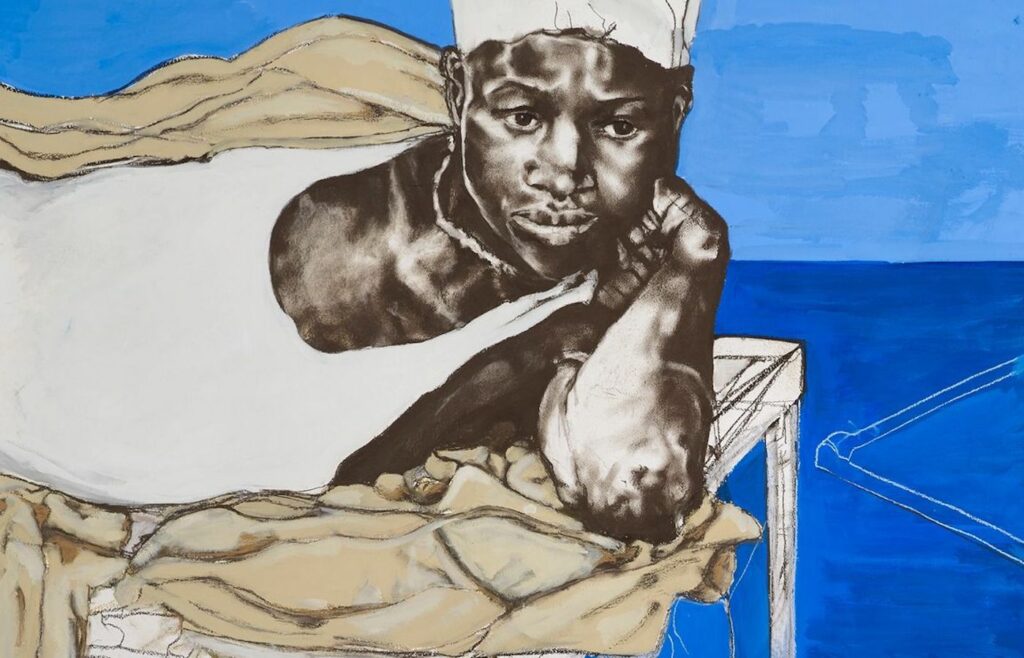Philadelphia Museum of Art, Philadelphia, United States
09 Nov 2024 - 09 Feb 2024

Kind of Blue by Claudette Johnson (2020) © Claudette Johnson. Courtesy of the artist and Hollybush Gardens, London. Photo: Andy Keate.
The Philadelphia Museum of Art (PMA) announces the U.S. premiere of The Time is Always Now: Artists Reframe the Black Figure. This exhibition features 27 Black and African diasporic contemporary artists who use figurative painting, drawing and sculpture to illuminate and celebrate the nuance and richness of Black contemporary life. Through their work, these artists invite us to consider Blackness as a lived experience rather than as a biological fact.
Curated by British writer and curator Ekow Eshun, The Time is Always Now takes its title from an essay on desegregation by American writer and social rights activist James Baldwin. It highlights a sense of urgency around contemporary artistic expression, while acting as a reminder that Black artists exist within an always-evolving artistic lineage.
Traveling to the PMA from the National Portrait Gallery in London, the Black and African diasporic artists in this exhibition work in the U.S. and the U.K. They include Michael Armitage, Claudette Johnson, Kerry James Marshall, Toyin Ojih Odutola, and Amy Sherald. For the show’s U.S. presentation, additional artists working in Philadelphia, London, and New York have been added including Jonathan Lyndon Chase, Kudzanai-Violet Hwami, Danielle Mckinney, and Arthur Timothy.
The more than 60 contemporary works featured in this exhibition unfold around three core themes: Double Consciousness, The Persistence of History and Our Aliveness. Double Consciousness, a theory first introduced in 1897 by the African American sociologist W.E.B Du Bois, explores concepts of being, belonging and Blackness as a psychological state. Works including Amy Sherald’s grayscale portraits, a cast-bronze self-portrait sculpture by Wangechi Mutu, and Nathaniel Mary Quinn‘s fragmented portraits examine the ways in which artists see themselves, as well as how they are seen and framed by others, navigating real and imagined identities.
The Persistence of History explores the absence of Black figures in many mainstream narratives and shows how artists have responded. Barbara Walker, for example, recreates historical portraits with graphite and embossing, reconfiguring Western art history to give primary focus to the Black subject. This section continues with works by Kimathi Donkor, Godfried Donkor and Lubaina Himid, who use the tradition of history painting to restage overlooked narratives and elevate Black protagonists.
Our Aliveness features assertions and celebrations of Black assembly and gathering, including a painting by Hurvin Anderson, unpacking the cultural significance of the barbershop to the Caribbean diasporic community. While many of the exhibited artworks depict scenes of joyful gathering, references are also made to histories of segregation and oppositions to public expressions of Black sociality. The works of Jordan Casteel capture encounters on the streets of Harlem, turning her sitters from anonymous passersby to portraits brimming with personality.